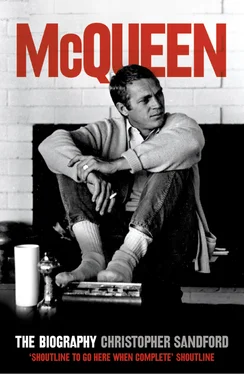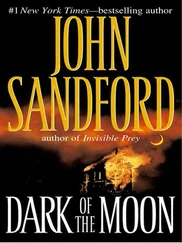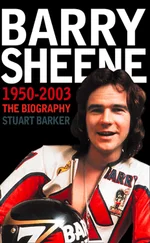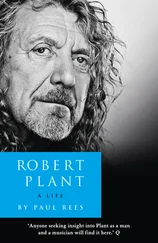Having joined the corps as a private in April 1947, McQueen left it exactly three years later with the same rank. From Camp Lejeune he hitched his way down the Pee Dee river to South Carolina. There was some talk of him moving in with – even marrying – his girl there, neither of which ever happened. Steve always preferred tearless exits, women knew, and he didn’t disappoint his Myrtle Beach connection that summer. In the early hours of 22 August 1950, his mustering-out pay gone, McQueen jumped a train to Washington, DC, where he eventually became a taxi driver. His parting note to his fiancée said he was sorry, he’d tried, but, as far as loving someone went – ‘I cant remember the drill.’
But then, Steve had a lot to forget.
The next year was a relatively happy one for McQueen, even though his income wasn’t large or his jobs very promising. He moved back to New York, to a $19 a month cold-water flat in Greenwich Village. Having thrown over a good living as a cabbie, he worked as a builder’s mate, did a paper round, repaired TV sets, trained as a cobbler, boxed, played stud, recapped tyres in a garage and ran numbers for a local bookie. On his own cheerful admission, he ‘got wasted a lot’. By now, pot, wine and beer had become his constant companions, his most dependable friends. Sometimes, late at night, Steve would take his bottles and bags down from the shelf, count them and fondle them as, other nights, he was known to do to his guests: there were literally dozens of women. It’s significant that he recognised the ways in which his cynical but childish twenty-year-old self kindled emotions associated with a much younger boy. Even teenagers wanted to mother him.
Nor did McQueen get about much. If he ever needed male company, his card-playing or dirt-biking crew would come round. Two ex-marines once paid him a visit at the apartment. Steve generously urged them, along with his current girl, to go out on the afternoon of her day off while he made dinner. They returned and found no trace of food or of McQueen. He was discovered in the kitchen reading the paper and drinking beer. Supper was ready: it consisted of meat loaf, potato salad and pie, all scrounged from the local diner. Steve was inordinately proud of this achievement and boasted of it for years later. Aside from a few tins and paper plates, his only personal effects around the place were a stolen NO PARKING sign he used as barbells and the 1946 Indian Chief motorcycle he kept by his bed. Dora Yanni, who knew McQueen in late 1950, remembers the look of ‘almost sexual awe’ that came over him whenever he gazed at the bike – quite unlike the ‘perfunctory stuff’ he went through with the women whom, she shrewdly guessed, ‘Steve needed but didn’t like’. Julian, for one, never called.
Though, naturally enough, he didn’t realise it at the time, McQueen had lived through the most pivotal years of his life. Although still technically a minor, he had the raw material to harness his own adult personality. Already a pattern had emerged: thoughts of disgust upon waking in the morning. Feelings of depression for most of the day. Dreams of manic elation and triumph on a great tide of sexual encounters after dark. During the night itself, he often lay awake reviewing things, and they often made him sick.
In the five years since he left Boys Republic, McQueen had variously worked as a deck ape, card-sharp, gigolo, huckster and runner in a brothel. His mind went in dolorous circles around the dim past – furnished slums, he always remembered, with gaslight laid on and find your own heating. Steve’s self-dramatising impulse, so crucial to his acting genius, grew out of a need to escape. He was a serial runaway, a Leatherneck and a boxer, an expert at pool and motorbikes. Not surprisingly he had a temper. Yanni’s recollection of him gripping the stationary Indian Chief, swaying back and forth on the seat as if it were a rocking horse, is chilling enough; but the self-destructive fits, not often encountered in the life of the publicised McQueen, were ‘worse – the pits’. Drinking for fun was out, but drinking to induce coma was a way of coping with life, specifically with ‘chicks’. The thought of sex while sober was like a doom before him.
Nor were career prospects that rosy. For most of the winter of 1950–51 Steve’s odds-on fate was a swift exit into jail, if not an undignified grave. Hundreds or thousands of men like him fell every year in New York, first in the gutter and then down the drain. What separated him from them was, oddly enough, both a strength and a weakness – his insecurity. Steve was, as he saw it, in a death struggle with the world, and he successfully passed off his dark streak as a sign of necessary moral fibre. Tenacity was what life was about. He was going to ‘grab the brass ring’, he told Yanni, who remembers visiting Steve one wet evening that March, carrying beer and cake ‘to celebrate, for once’. But by the time she got inside McQueen was already on the Indian Chief, rocking to and fro and repeating, like a machine, ‘Bad…Very bad,’ while gazing straight ahead of him with a glazed expression ‘like a man scoping hell’. Some of the ‘madness and fire’ that drove McQueen was there that night in the apartment, as Yanni watched him slowly nodding, then lurching with furious speed, kicking at the wheels of the bike, falling at last into an exhausted slump and sobbing with dreadful, ever-increasing momentum, panting and miserably trying to blink out the dampness in his eyes.
He was twenty-one.
3 ‘Should I lay bathrooms, or should I perform?’
McQueen’s mother never visited him in New York, even though she was living a few blocks away. In a sad twist on Steve’s life, Julian, too, drank fanatically and slept from bed to bed, the great masculine prop of her thirties, Lukens, casually admitting to keeping a wife and family at home in Florida. After he left, Julian drifted around the Village, where she eventually ran into McQueen one night in a bar. From her crouch on a stool, he remembered this ‘zonked out lady’, now plump and with matted hair, piped up, ‘Tell me you don’t know me, Steven.’ His reply was curt: ‘Drop dead.’ But the reunion wasn’t over yet. ‘For God’s sake,’ she sobbed, ‘at least give me your hand and help me out of here.’ A moment later Steve was walking her outside, where they awkwardly exchanged phone numbers. There was the faintest suspicion of a reel as mother turned one way up Broadway and son the other. Apart from that barely visible lurch, Julian’s slow departure wasn’t without dignity. For years afterwards Steve would remember her ‘shuffling off home alone’, and if he had his regrets on other fronts, they were as nothing compared to how he felt about Julian. That ‘narcotic whiff’ of mother loss, says Yanni, would be the first source of his genius as an actor.
A few years later McQueen hit the heights with more than his share of personal ‘shit’; but this almost always fed his career. For one thing, as the 1950s prove, he was an uncommonly driven man in his need for greatness, achievement, recognition; the sort of drives that come from doubt rather than, in the Freudian sense, being his mother’s darling. As he so often did later, when creating his best characters, McQueen sought to mitigate despair through toughness. His grubby twenties were largely spent trawling Manhattan in the years before being ‘different’ enjoyed much status there. In those days you sensed you were illegitimate or off the farm based on who picked fights with you in bars. A year after separating from the Marines, McQueen was back weight-training again. By now the thin, pockmarked teen had bulked into a stud, small and compact but with the sinewy mark of his boxing days. Steve’s face was a similar case of taking the rough with the smooth. According to Yanni, he ‘was like a crude sketch for one of Rodin’s hulks’ – rough-hewn and finely chiselled in equal measure. McQueen seemed to be hungry or tired at least half the time. What mattered more was that he always looked dangerous.
Читать дальше












